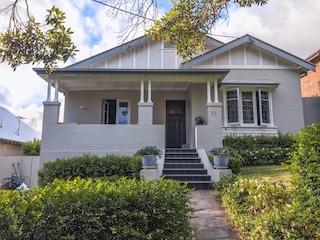Seven Hills suburb profile
Seven Hills is a well-established suburb in Sydney's western region, approximately 27km from the CBD. Known for its family-friendly atmosphere, it offers a mix of residential, commercial, and industrial areas. The suburb features a variety of housing options, from classic homes to modern developments, catering to diverse lifestyles. Seven Hills is well-serviced by public transport, including a train station on the T1 Western Line, providing easy access to the city and surrounding areas. With numerous parks, schools, and shopping centers, it is a convenient and appealing choice for families and professionals seeking suburban living with urban connectivity.
Seven Hills property market performance
Current median dwelling price$926,000Past 3 months
Property growth+5.9%Past 12 months
Seven Hills has experienced a robust property market over the past 12 months, with house values increasing by 9.3%, bringing the median house price to $1.21 million. Although the median unit price is not available, unit values have seen a modest rise of 2.5% over the same period.
Sales activity has been notable, with 51 houses and 9 units sold in the past 12 months. Houses are selling relatively quickly, with a median of 35 days on the market, while units are taking significantly longer at 94 days, indicating a slower pace in the unit market.
The rental market in Seven Hills has shown steady growth, with average rents for houses increasing by 5.0% to $630, and units seeing a 4.8% rise to $650 over the last 12 months, reflecting a balanced demand for rental properties.
| Houses | Units | |
|---|---|---|
Median price Past 3 months | $1.23M | N/A |
Change in value Past 12 months | 9.1% | 2.8% |
Sold Past 3 months | 37 | 4 |
Median days on market Past 12 months | 36 | 99 |
Average rent Past 12 months | $630 | $650 |
Change in rent Past 12 months | 4.1% | 4.8% |
5 year median price trend for houses and units
Seven Hills demographics
Seven Hills, located in the Greater Western Sydney region, is a suburb that offers a balanced lifestyle with a mix of urban convenience and suburban tranquility. With a population of 20,095 and a median age of 37, it is a community that caters to families, professionals, and retirees alike. The suburb's proximity to major transport links and shopping centers makes it a practical choice for those seeking accessibility and amenities.
The housing landscape in Seven Hills is diverse, with a significant portion of properties being owned outright (28.3%) or with a mortgage (35.5%). This indicates a stable community with a mix of long-term residents and new homeowners. The rental market also plays a crucial role, with 36.2% of properties being rented, appealing to those who prefer flexibility or are new to the area.
Family life is a cornerstone of Seven Hills, with couple families with children making up 50.6% of the households. This family-friendly environment is complemented by a variety of schools, parks, and recreational facilities, making it an attractive option for those raising children. The suburb also supports a diverse community with 16.1% of households being one-parent families, reflecting its inclusive nature.
Overall, Seven Hills offers a well-rounded lifestyle with a strong sense of community, making it a desirable place to live for those seeking a blend of suburban charm and urban convenience.
Seven Hills infrastructure, key developments and investment opportunities
Seven Hills is experiencing several developments that could impact its property market. The suburb is undergoing a transformation with new residential projects, including apartment complexes near the train station, which are likely to increase housing supply and potentially attract new residents. The recent upgrade of Seven Hills Plaza shopping center has enhanced local amenities, potentially boosting the area's appeal to homebuyers and investors.
Infrastructure improvements are also noteworthy, with the ongoing Western Sydney Airport construction and associated transport links expected to improve connectivity and job opportunities in the broader region. Additionally, the NSW government's investment in local schools and community facilities is enhancing the suburb's livability. These developments, combined with Seven Hills' relatively affordable housing compared to neighboring suburbs, position it as an area of potential growth in Western Sydney's property market.
Seven Hills rental market trends
The rental market in Seven Hills has experienced moderate growth, with house rents increasing by 5.0% over the past year to $630 per week, while unit rents have seen a 4.8% rise to $650 per week. This steady growth reflects the suburb's appeal, driven by its convenient location and ongoing development, making it an attractive option for both renters and investors.
Suburbs near Seven Hills
Some popular suburbs near Seven Hills include:
How does Seven Hills compare to nearby suburbs?
- Median house prices: Seven Hills’s median house price is 16.4% higher than Lalor Park’s.
- Median unit prices: Seven Hills’s median unit price is 21.4% higher than Toongabbie’s.
- House price growth: Over the past 12 months, house prices in Seven Hills have grown 0.8% higher than in Lalor Park.
- Unit price growth: Over the past 12 months, unit prices in Seven Hills have grown 6.0% higher than in Toongabbie.
- Selling speed for houses: Properties in Seven Hills are selling 40.0% faster than in Toongabbie.
- Selling speed for units: Properties in nearby Toongabbie are selling 12.1% faster than in Seven Hills.
- Investment considerations: In Seven Hills, the rental yield for house is 27.7% lower than the Sydney average, while the rental yield for units is 13.1% lower.
- House price growth: Over the past 12 months, house prices in Seven Hills have grown 36.2% lower than the average rate of growth across Sydney.
- Unit price growth:Over the past 12 months, unit prices in Seven Hills have grown 30.0% lower than the average rate of growth for units across Sydney.

